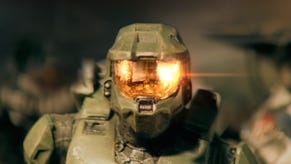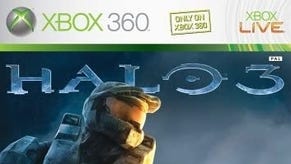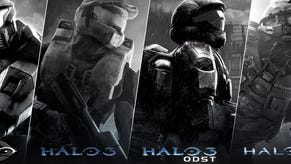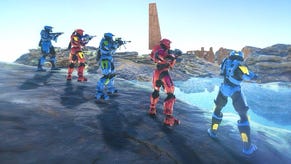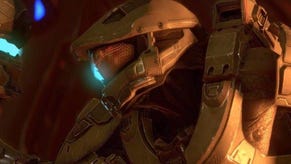Halo 3: ODST
A short, sharp drop.
Next you move on to the squad's hard man, Dutch, who ends up trawling the Covenant-packed parks outside New Mombasa in a warthog, lining up Wraiths for his gunner. Later you take control of Mickey, who drives a tank through the heart of the city. Then there's an explosive bridge sequence, and sniping among the rooftops with Romeo. It's a checklist of Halo disciplines level by level, but far from lazy, it's an ideal delivery mechanism for the thrills we've been missing since we finished the fight, with its own unique high points, like fighting off Banshees in the ruins of a downed Pelican, and teaching a Scarab to pick on something its own size. Between levels, the game returns to the Rookie, who continues his hunt, scavenging weapons and ammunition from Covenant detachments.
He also gets to know the Superintendent, the city's controlling AI, by locating glowing yellow phone booths and data points. This provides him access to supply caches - much-needed as ammo is scarce - but more importantly it gives him another couple of minutes' audio from the computer's logs, which tell the story of a young girl called Sadie and her attempts to reach her father, who is intimately connected with the events that brought the Covenant to bear on New Mombasa and, puzzlingly, only New Mombasa. You hear the audio recordings sequentially, no matter where you are when you locate the next one, and they are, in effect, a radio play; a well-acted, interesting side-story which leaves you anxious to learn more with each instalment.
The loss of the Chief has also had another side effect: it has thrust real, full-faced humans to the fore, encouraging Bungie to tell a human story. The result is worlds away from the wooden, military bombast and otherworldly Cortana interludes in Halo 3; in fact, with a core male cast plucked almost exclusively from Joss Whedon's contact book (Nathan Fillion as Buck, Adam Baldwin as Dutch and Alan Tudyk as Wash - sorry, Mickey), complemented by the multi-talented Nolan North (Uncharted, Prince of Persia), this is the closest we'll ever get to Firefly the FPS. There are a few duff lines, and Tricia Helfer is disappointingly shrill and one-dimensional as Veronica Dare, but Fillion in particular injects real pathos into the game's simple mystery.
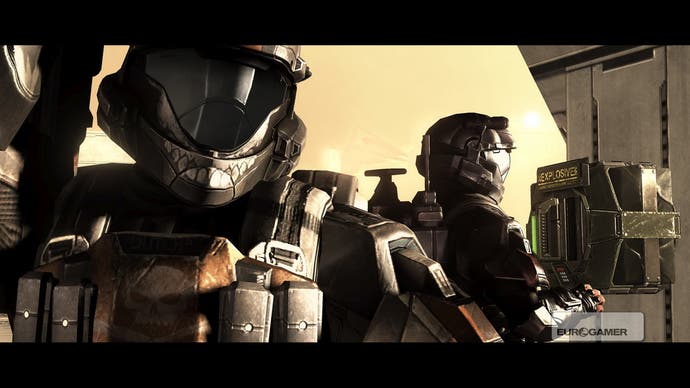
It's a major change, but as a whole ODST is still more of the same. The ODSTs lack the Chief's recharging health beneath an overshield, but they soak up a good few hits before they exhaust their stamina, which opens a broad health bar along the top of the screen to depletion unless you can find cover. The basic attack-and-retreat pattern of past Halo games remains, except now you need to keep an eye out for health packs, much as you did on the first of the Forerunner's ring worlds way back in 2001.
There is no equipment button, although you can always borrow a brute's shield bubble once it's deployed, and the ODST arsenal is pretty close to the Chief's, except for the addition of an enjoyable new incendiary grenade which douses targets in flames. Playing the campaign in co-op, you could well be playing Halo 3 again; pace and tactics are determined by the game's usually excellent level design, and even the night-time battles that rely on the VISR's night-vision play out in familiar fashion.

